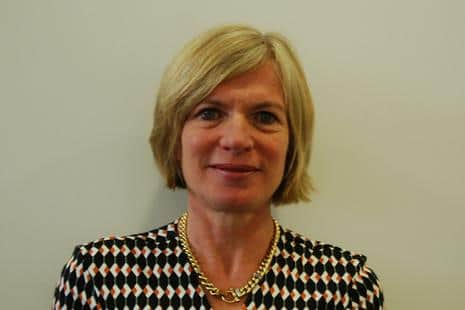Nearly 100 miles of Sheffield paths could be lost
and live on Freeview channel 276
Volunteers from Ramblers have searched maps covering England and Wales and found over 49,000 miles of unrecorded rights of way – 98 of them here in Sheffield.
The charity says it is important not to lose access to the paths, which were missed off the record of rights of way when local authorities drew it up in the 1950s and 1960s.
Advertisement
Hide AdAdvertisement
Hide AdUnless they are registered by the Government’s deadline of January 1 2026, they will not be protected as public rights of way.


Ramblers has set up its Don’t Lose Your Way project to identify and record the paths that are most useful to people who live near them – for example, those which help connect communities, or which link circular routes.
Programme manager Jack Cornish said: “We have a fantastic rights of way network in England and Wales, but we know that in some places it doesn’t make complete sense – paths that stop in the middle of nowhere or whole communities with few legally recorded paths.
“Improving and expanding our network will give more opportunities for people to access.
Advertisement
Hide AdAdvertisement
Hide Ad“These are rights of way that have been built up over hundreds of years, an important part of our collective heritage, and once they are lost, they are lost forever.
“By protecting these historic paths, we are safeguarding our landscape and our right to access it for the future.”
If a path is on the Government’s definitive map, it is covered by the legal protection that public rights of way get.
This means that landowners and local authorities are responsible for ensuring that paths are maintained, clear of obstruction and signposted.
Advertisement
Hide AdAdvertisement
Hide AdThe charity said that protecting and improving the current network was key for people to enjoy the outdoors – an aspect which became even more important during the coronavirus pandemic.
Marian Spain, chief executive at Natural England, said: “Coronavirus has reminded us all of the importance of access to green spaces and footpaths, with more and more people using these precious assets to connect with nature as a way of helping cope with the restrictions on our home and working lives.
“The evidence is clear that access to nature is good for our mental and physical health.
“Natural England is kick-starting the biggest programme for nature recovery in England’s history – ensuring the natural world on which we depend is restored at a transformational scale and in a way in which people can access nature as part of their day to day lives, creating a network green spaces on everyone’s doorstep in both towns and the countryside.
Advertisement
Hide AdAdvertisement
Hide Ad"Footpaths and other rights of way are an important part of that Nature Recovery Network, which will bring huge health and wellbeing benefits.”
In these confusing and worrying times, local journalism is more vital than ever. Thanks to everyone who helps us ask the questions that matter by taking out a digital subscription or buying a paper. We stand together. Nancy Fielder, editor.
Comment Guidelines
National World encourages reader discussion on our stories. User feedback, insights and back-and-forth exchanges add a rich layer of context to reporting. Please review our Community Guidelines before commenting.